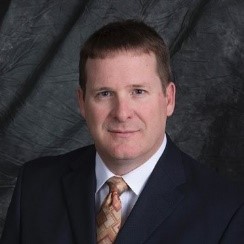Systems Engineering Goes to Mars
Posted on December 1, 2016 by R. Cloutier

I admit it, I am a science fiction nut. But, it has to be the Isaac Asimov type of science fiction – scifi that has some basis of fact, engineering, and science. So I set up my Tivo to record the first episode of the National Geographic mini-series about colonizing Mars. Let me say here, this is no lightweight production. Ron Howard is the executive producer. And, throughout the first episode, it featured interviews and commentary from space experts - astrophysicist and TV star Neil deGrasse Tyson, SpaceX founder Elon Musk and his SpaceX team, NASA administrator Charles Bolden, astronaut James Lovell of the Apollo 13 mission, and "The Martian" author Andy Weir. I will not give away the plot other than to say it is about a 6-person, international crew that is being sent to colonize Mars in the year 2033. They are headed toward their new home/facility that has been pre-built by robots.
What caused me to jump out of my seat and ask my wife to rewind that part so I could make sure I saw it right, was when the each of the crew was being introduced to the audience. As the camera pans to each member of the crew, a tagline appeared that told us their name, their role, and what their expertise was. What we learned is that the Mission Commander is also a Systems Engineer! The Mission Pilot is also listed as a Systems Engineer! The rest of the crew is rounded out with a Mechanical Engineer & Roboticist, a Mission Physician & Biochemist, a Hydrologist & Geochemist, and finally, a Geologist & Exobiologist.
Systems engineers! Going to Mars! This makes all kind of good sense to me. And I will admit, this is the first time I remember seeing a systems engineer as a TV role – let alone two in the same cast. My guess is that this comes from heavy NASA and JPL influence – both organizations have large systems engineering groups.
So, let us explore for a moment the implication of this selection. The show is sending their “best and brightest” to colonize another planet, and live in a pre-built facility. Who among you believes there will not be a LOT of troubleshooting? Things that did not go together just right – software that did not function as the software engineer intended? Parts that do not fit quite right, thereby allowing the Martian atmosphere to leak in, or worse, allows the valuable oxygen to leak out? How do you solve those problems when you are 249M miles from the nearest Home Depot or Edmunds Scientific?
There is an ongoing, multi-year research initiative performed by the Systems Engineering Research Center[1] entitled Helix – Developing Effective Systems Engineers that is coming to a close the end of this year. The study is based on information gathered while interviewing 287 individuals, from 20 different organizations. While the study is on systems engineering, 9% of those interviewed were peers of systems engineers – classic engineers, project managers, and management. One of the identified roles of a systems engineer is to be the glue of a project. Glue is defined as
Individual who is responsible for a holistic perspective on the system; from Sheard[2] (1996), this may be the “technical conscience” or “seeker of issues that fall ‘in the cracks’”, particularly someone who is concerned with interfaces.[3]
Other interesting traits of systems engineers identified in this study that are not normally identified with being an engineer at all. In fact, they are sometimes referred to as “soft skills”. They are:
Technical Leadership: Skills and behaviors associated with the ability to guide a diverse team of experts toward a specific technical goal. Categories include: building and orchestrating a diverse team; balanced decision making and rational risk taking; managing stakeholders and their needs; conflict resolution and barrier breaking; and business and project management skills.
Interpersonal Skills: Skills and behaviors associated with the ability to work effectively in a team environment and to coordinate across the problem domain and solution domain. Categories include: communication; listening and comprehension; working in a team; influence, persuasion, and negotiation; and building a social network.
If systems engineering is not part of a corporate culture, and an engineer in that
organization realizes these are some of their key competencies, it is my belief that
some of these individuals will pursue an MBA, believing they will do better in management
than in engineering. And, in fact, that is what I did. Yet, these are some the skills
that set a systems engineer apart from other engineers. They are the traits that let
them be the glue on your most advanced and complex projects.
[1] http://www.sercuarc.org/
[2] Sheard, S. “Twelve Systems Engineering Roles.” Proceedings of the International
Council on Systems Engineering (INCOSE) Sixth Annual International Symposium, Boston,
Massachusetts, USA, 1996
[3] Atlas 0.6: Expanding on the Theory of Effective Systems Engineers Technical Report
SERC-2016-TR-106 April 22, 2016. http://www.sercuarc.org/wp-content/uploads/2014/05/Helix_Atlas_0-6_final.pdf
-

Ph.D. Defense
Congratulations to Tom Wade. He successfully defended his doctoral dis...
June 17, 2020 -

Systems Engineering Master's Degree approved
The Alabama Commission on Higher Education voted to approve to allow U...
June 17, 2020 -

D.Sc. Defense
Jacob Deal and Meagan Bunge Successfully Defend their Research!...
June 12, 2018 -

INCOSE names new SEBoK Editor-in-Chief
International Council on Systems Engineering (INCOSE) Selects USA Prof...
June 11, 2018
